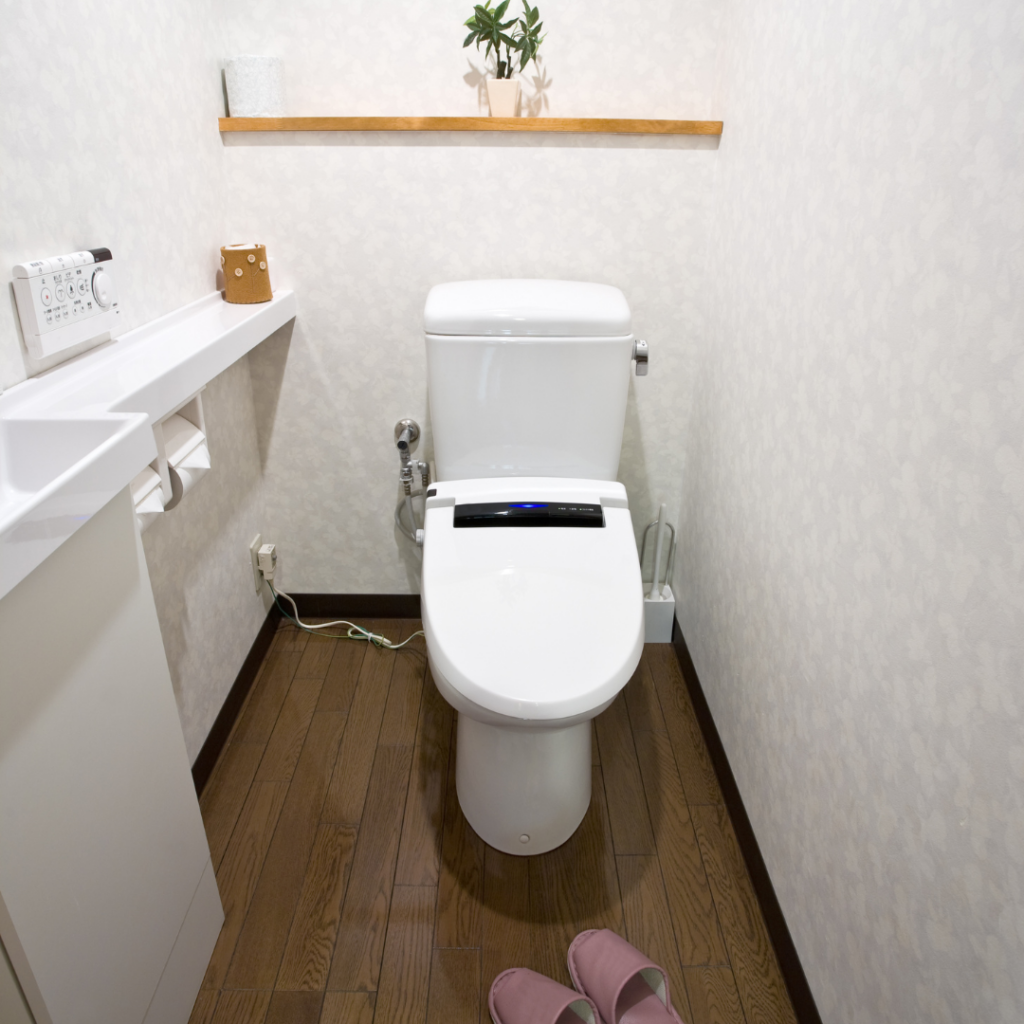How to be a good roommate, again

Maybe you remember the first time you lived on your own. Crazy! Exciting!
Maybe you had finally broken free from the parental nest. Maybe you were off to school, or to a job in another city, or following your heart to the place where your beloved lived. Or maybe you were just young and fierce and ready to be on your own. Or all of the above.
It’s a giddy, intoxicating rush to be young, fierce, fine, and on your own for the first time. Especially if your new address was someplace more bougie (or at least more interesting) than the old homestead. Example: a rooftop flat in the Marais, a former storage unit, your home. Now it’s basically a toilet, a sink, and a primitive stall shower in the middle of a bare, open room with drafty old windows. But it’s in Paris! It was built in 1803! And did we already say, it’s in Paris??? All good. But here’s where we say: being a roommate at age 50, 60 or beyond because you kind of have to, financially, is a whole different vibe, although some of the same rules apply.

The Truth:
Without generalizing too wildly, many women in midlife and beyond once were matriarchs. Okay, okay, once a matriarch, always a matriarch. But you get the gist: you were married, had kids, and your house became the epicenter of family gatherings, birthday parties, Sunday get-togethers, summer cook-outs, Christmas gift-giving and more.
And now…things are different. Maybe you’re divorced, or a widow, or maybe you are mated. But your kids, if you had them, have flown. You have retired (as has your mate, if you have one). You have some income, but it’s slim. And now you need to keep careful watch over your cash flow.
Three possible scenarios:
- You still own the big house…but are considering renting out a room or two to generate some monthly income.
- You don’t have the big house anymore, and need a comfortable arrangement. Living alone in a single girlie flat doesn’t appeal to you now, because rent is beyond outrageous in your city of choice. Check this box if you choose to live on either coast, or in a major US city, where a truly basic studio, one-bedroom apartment may list at $1,500 / month and UP!
- You have decent cash flow, but…a medical condition or something else now necessitates that you have support, ranging from a driver for your appointments to live-in assisted care.
The bottom-line is that many of us will find ourselves in new living arrangements at the half-century mark and beyond, for an array of reasons. This isn’t necessarily a bad thing. Here are a few points to consider:
- If you’re the landlord, meaning that you own the house, you make the rules. Periodt. This is the most desirable, Alpha-Gal arrangement. You do need to draw up a lease and have tenants sign it, yes, even if they are family or friends. Maybe especially if they are family or friends, since people we already know may make assumptions that may make the living-together situation rocky in the future.
- If you’re a renter, be sure that you look out for yourself. In addition to simply counting on basic human decency, you also have legal rights. For example, there are state laws in place to protect tenants in domestic violence situations.
In the first case, you are the landlord, and it goes without saying that you need to draw up a legit lease agreement that all of the tenants sign. And in either case, it’s wise for the co-tenants (roommates) also draw up a separate roommate agreement which covers:
- Amounts due for rent, deposits, services including utilities and internet
- Schedule for shared chores
- Definition of how common areas are to be treated
- House rules regarding noise-level, pets, guests, alcohol, herb
- Timing and notice required to move out
Bear in mind that the landlord’s lease supersedes your roommate agreement, but having both in place will help prevent conflict and nasty surprises (like someone’s random overnight guest in the kitchen making coffee the morning after!).
Also bear in mind that in many instances, landlords view a group of co-tenants as a single entity. This may mean that if one of you causes problems (i.e., violates the lease), the landlord may choose to terminate the entire tenancy, and can hold all of you legally responsible for damage to the property, etc., depending upon what happened.
This cold, stark fact illustrates the point that house-mates must operate as a community, built on trust. Part of the roommate agreement needs to cover the fact that all tenants who sign the landlord’s lease are responsible for the rent for the entire duration of the lease, whether they live there or not! If a co-tenant splits without paying their share, you and the other co-tenants will need to pay the rent in full or face eviction.

In general, problems often arise regarding common areas and shared items: bathrooms kitchen, living room, television set, sound system, laundry room. If the house is large, maybe you’ll have your own bathroom. If not, remember that your shared house is not a hotel, so leave the area in better condition than when you stepped in to use it. Do NOT use other people’s towels! Do NOT use the last square of toilet tissue, and not replace the roll! DO flush (please). DO scrub the bowl with disinfectant after using it. DO crack a window for some ventilation. DO bring your own shampoo, conditioner, body wash, etc. into the bathroom for your own use, and we recommend taking it back OUT when you’re done. Keeping your “stuff” separate and private goes a long way to preventing friction.
The shared kitchen is often another hot zone for conflict. Many roommates divide the fridge into sections, and assign a section to each person. Another approach is to simply sticky-note your stuff with your name. It is, however, possible for roommates to share what’s in the fridge, as long as there is a clear agreement that food and beverages will be replaced routinely, using a list compiled by everyone in the house. Just like home, sharing requires communication, honesty, and a little generosity. If your roomie really, really NEEDS the last scoop of Ben and Jerry’s Cherry Garcia ice cream (been there!), it’s okay to grant that wish, as long as similar generosity is sent your way.
All of the above sounds so obvious, and it should seem like second nature — right? You’d be surprised. First, check yourself. If you’ve lived on your own, or with your own spouse and children, for decades, chances are you’ve become accustomed to life as a Queen Bee, doing things your way. Letting go of that attitude may be the hardest part of entering into a shared housing situation as an Elder. Do not expect the other co-tenants to accommodate you simply because you’re an Auntie of a certain age; American society no longer works that way. (With this in mind, we do recommend rooming with others of the same generation, when possible.)
But being a Queen and an Elder, be sure that you rise to the occasion and behave in a way that’s deserving of these titles. Continue to say “Please” and “Thank-you,” the way we all learned to do as children. Avoid petty conflicts. Be fair. Forgive minor trespasses if intentions were good.

Maybe our most valuable piece of advice: work out beefs face-to-face. It’s so easy to fire off stinging emails or texts when we’re angry, frustrated, tired. But those harsh words can’t be taken back, and can damage an otherwise workable relationship. Do NOT call your roommate at work with a raging complaint, and do NOT leave a nasty note taped to their bedroom door. Assuming that you aren’t confronted with a life-threatening emergency, wait until you are calm and clear-headed. Approach your roommate in a confident but kind manner, and ask, “May I please have a word with you?” (versus a sharp, “Hey, we need to talk”).
When heading into a confrontation, don’t attack, accuse, or talk about the other person. Talk about yourself, and how you feel, and why you feel that way. Example:

“Ashley, you can imagine my surprise when I came home from work to find a live alligator in the tub, chewing on my new loofah. Since you mentioned that your ex raises exotic pets, I conclude that the gator is yours. Please tell me how you plan to remove the reptile in time for my bubble-bath this evening.” It’s so important to air our grievances, and we find that maintaining self-control when doing so is more likely to produce the desired outcome than screaming profanities.
Once in a while, be outrageously kind, for no apparent reason: run an errand for someone in the house, clean the kitchen, cook up a great Sunday supper for everyone, or just place a bunch of supermarket daisies on the dining room table for all to enjoy. While it’s absolutely crucial to define and respect boundaries and divide expenses and chores, experience tells us that sometimes an unexpectedly graceful gesture can sweeten an otherwise sour pot.
#
Please share your thoughts with us about “rooming”, again in the comment section below!
Be the first to comment